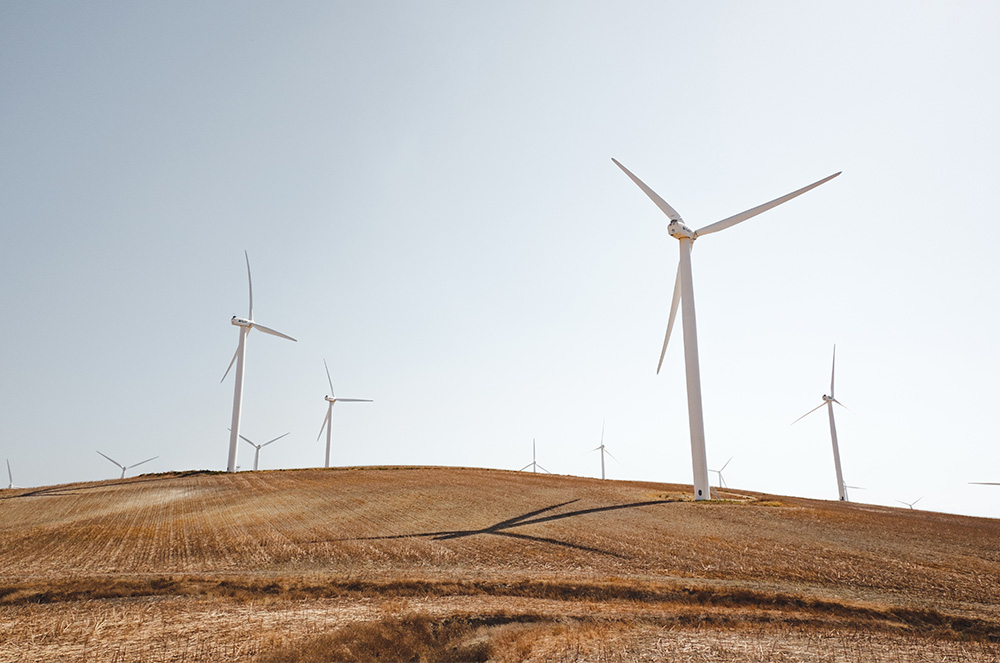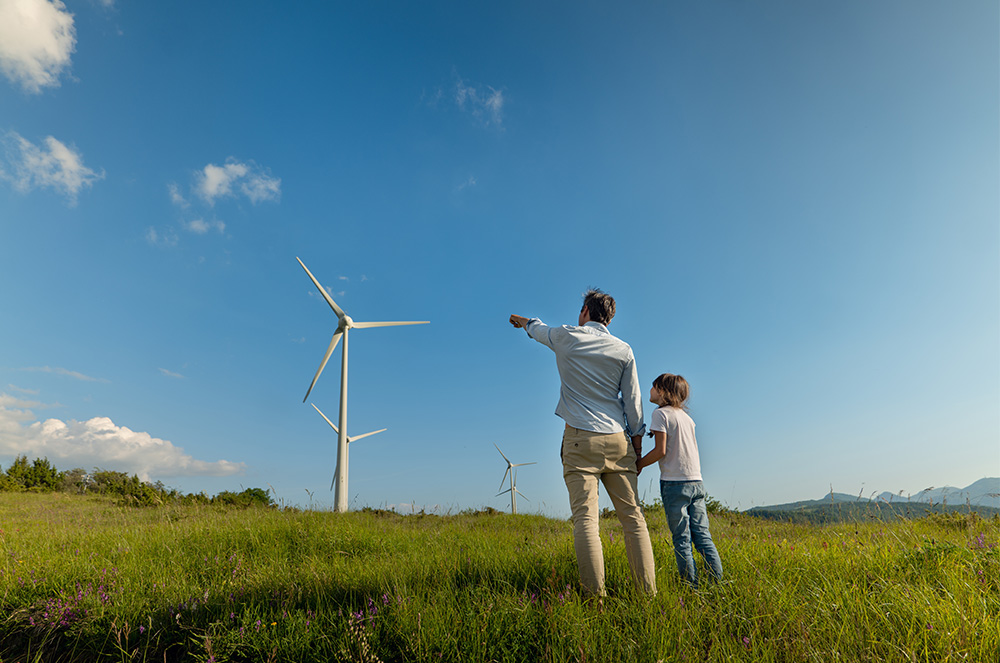Wind energy boosts Europe's security, prosperity and competitiveness
European citizens and businesses want reliable, affordable and clean energy. The current geopolitical situation is a stark reminder that imported fossil fuels do not deliver that. Wind is homegrown, it's uniquely placed to boost Europe's energy security, prosperity and competitiveness while delivering on decarbonisation.
Security
The EU spends €500bn a year on energy imports - most of them fossil fuels. This has led to Europe's dependence on volatile prices and foreign sources. Europe's existing wind farms reduce fossil fuel demand by 100 bcm a year - 500 large oil tankers.
Wind is now 20% of the electricity consumed in Europe. It's a reliable energy source. New onshore wind farms now run at capacity factors of 30-45%. That's significantly higher than other sources of variable renewable power. And new offshore wind farms at 50%. You can build a stable power system around wind. Germany, Spain, Sweden, Denmark, the UK, Ireland, Portugal and Lithuania all get over a quarter of their electricity from wind. The wind industry takes its role seriously to protect wind farms from physical and cyberattacks by working together with relevant national authorities and international defence organizations such as the European Defence Agency and NATO.
20%
Wind's share of
Europe's electricity
30% by 2030
Local energy and 'made in Europe'
Prosperity
Wind contributes €52bn to Europe's GDP each year. Nearly 450,000 people work in Europe's wind industry across 250+ factories. Wind farms boost local economies, especially in rural and coastal areas. Communities across Europe benefit from the more than €10bn of taxes which wind farms pay each year. Europe's electricity consumers saved €100bn between 2021 and 2023 thanks just to the new wind and solar built those 3 years. More wind means lower energy bills.
442,000
Jobs
600,000 by 2030
€10bn p.a. tax
revenues
Competitiveness
Wind and solar are the cheapest electricity sources, even with grid and system costs. Wind is scalable, faster to build than most other energy sources, and its costs are predictable. Large energy-consuming industries - chemicals, steel, aluminium, ICT, pharma, food/drink - want more power from wind and are signing more and more PPAs - last year with 9 GW of wind farms. For reference, that's around half the electricity consumed in Greece.
258 GW
Installed wind
power capacity
458 GW by 2030
Cheaper than
fossil power
Wind is 20%
of Europe's electricity
Find out how much wind was in Europe's electricity mix yesterday Daily wind power numbers
Where does our electricity come from?

EU sees wind being half of electricity by 2050
Wind is more than 20% of the electricity mix in 11 EU countries
- Denmark55%
- Ireland33%
- Sweden31%
- Germany30%
- UK30%
- Netherlands29%
- Portugal28%
- Lithuania27%
- Spain25%
- Finland24%
- Greece22%
There are 107,000
wind turbines in Europe today
Together they provide 258 GW of wind power capacity - meeting 19% of Europe's final electricity demand.

Wind supports Europe's economy
€52bn in economic activity
442,000 jobs
250 factories across Europe
€10bn in taxes each year
Find out more
Wind supports
European security
As a homegrown energy source, wind is a major strategic asset, boosting Europe's global autonomy.
It cuts our dependence on imported fossil fuels
In 2024, 100bn cubic metres of fossil fuel imports were avoided thanks to wind
Find out more

Circular Wind. Infinite Power.
Europe’s wind industry is quickly closing the circularity loop – with new initiatives and solutions to reuse, repurpose, recycle and recover wind turbine blades.
90% of a turbine's total mass is recyclable
Modern turbines pay back their carbon footprint in 3-14 months
Wind industry is championing new solutions to blade circularity
Find out more
Wind energy
protects
biodiversity
From marine conservation to pollinator spaces and bird hotels - wind turbines are designed to support their natural surroundings.
Wind farms have a low impact on birds
Wind energy and agriculture are fully compatible
Wind energy can coexist happily with nature and farm animals
Let's separate facts from fiction
Here's a breakdown of some of the most common myths and disinformation on wind.
Wind and solar are now the cheapest sources of electricity in Europe
There is no scientific evidence linking offshore wind farms to increased whale deaths
Find out more

Learn more about wind energy
For teachers and students of all ages - our free learning resources are a quick and easy introduction to wind energy. And a guide to careers in wind as well
Discover the wind energy initiative
An Ecovadis and WindEurope initiative created by a group of companies to enhance ESG transparency and elevate the performance standards of suppliers within the wind energy industry.
Subscribe to our newsletter
Stay up to date with our activities (events, news, policy and more).


